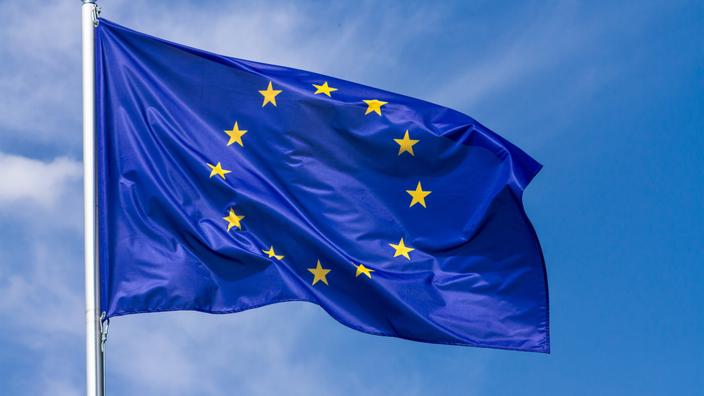The German Constitutional Court gave the green light on Wednesday for the ratification of the European recovery plan, rejecting an appeal which notably challenged the novel and controversial mechanism of the common debt.
Read also: European recovery plan: Southern countries in pole position
This decision was awaited with anxiety by national and European officials after the blocking, at the end of March, of the process which only needed the signature of the German head of state.
750 billion euros
"
A summary examination does not reveal a high probability of violation
" of the fundamental law, explains in its conclusions the highest court of the country. It will continue its examination of the complaint on the merits but rejects the request for an emergency suspension, considering that the “
disadvantages
” of a delay in ratification outweigh any other consideration.
Harshly negotiated last summer by the Twenty-Seven, the € 750 billion stimulus fund is essential to help EU countries cope with the economic consequences of the Covid-19 pandemic. The President of the European Commission Ursula von der Leyen "
welcomed
", in a tweet, the decision of the German Court. The recovery plan "
will pave the way for a green, digital and more resilient European Union,
" she said.
The German government spoke of a "
good day for Europe
", satisfied that "
nothing more prevents a ratification
" by the first economy of the EU, according to the Minister for European Affairs Michael Roth.
Finance Minister Olaf Scholz hailed "
a very important step forward in the fight against the pandemic
".
Both chambers of the national parliament - the Chamber of Deputies (Bundestag) and the Bundesrat, where the regions sit - adopted the plan in March.
This will now be able to be initialed by the President of the Republic Frank-Walter Steinmeier.
Read also: Relaunch: Brussels locks the use of European funds by Member States
The Karlsruhe Court ruled that a delay in the entry into force of this unprecedented instrument "would
compromise the objective of economic policy
" and that "
the inconveniences could prove to be irreversible
" given the urgency of the recovery in the face of the pandemic.
A delay would also lead to "
considerable friction in foreign and European policy
", according to a government argument taken up by the Court.
Exceptional tool
In total, 17 European countries - including France, Italy and Spain - have ratified the recovery plan, the payments of which are eagerly awaited by the states most affected by the impact of the health crisis. This fund is based on an unprecedented mechanism of debt common to all member states, and part of the money will be allocated in the form of grants (312.5 billion). It is precisely this pooling of the debts of European countries that the initiators of the appeal before the German Constitutional Court are contesting.
Opponents of the plan say Germany's Basic Law prohibits the country from sharing the debt burden with other states. Several political and economic leaders are alarmed at the slowness in the implementation of this community tool, especially when Joe Biden's United States began to disburse the sums of a massive aid and investment program. .
Any blockage of the European initiative would be "
an economic disaster for Europe
", recently warned Isabel Schnabel, member of the executive board of the European Central Bank (ECB).
The French Minister of the Economy Bruno Le Maire was annoyed at the beginning of April by German caution and "
additional delays
" implied by the referral to constitutional magistrates.
The Court of Karlsruhe has already been seized on several occasions in the past on similar questions, for example related to the measures to support the economy of the ECB.
Read also: Macron wants to boost the European recovery plan
The supreme judges have so far always ended up accepting them, but with more and more reservations, meaning that in their eyes we were at the limits of what is legally possible in Germany.






